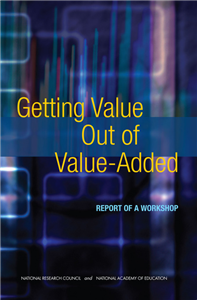Examinations & assessment
September 2011
Summary of a Workshop
The routine jobs of yesterday are being replaced by technology and/or shipped off-shore. In their place, job categories that require knowledge management, abstract reasoning, and personal services seem to be growing. The modern workplace requires workers to have broad cognitive and affective skills. Often referred to as "21st century skills," these skills include being able to solve complex problems, to think critically about tasks, to effectively communicate with people from a variety of different cultures and using a variety of different techniques, to work in collaboration with others, to adapt to rapidly changing environments and conditions for performing tasks, to effectively manage one's work, and to acquire new skills and information on one's own. The National Research Council (NRC) has convened two prior workshops on the topic of 21st century skills. The first, held in 2007, was designed to examine research on the skills required for the 21st century workplace and the extent to which they are meaningfully different from earlier eras and require corresponding changes in educational experiences. The second workshop, held in 2009, was designed to explore demand for these types of skills, consider intersections between science education reform goals and 21st century skills, examine models of high-quality science instruction that may develop the skills, and consider science teacher readiness for 21st century skills. The third workshop was intended to delve more deeply into the topic of assessment. The goal for this workshop was to capitalize on the prior efforts and explore strategies for assessing the five skills identified earlier. The Committee on the Assessment of 21st Century Skills was asked to organize a workshop that reviewed the assessments and related research for each of the five skills identified at the previous workshops, with special attention to recent developments in technology-enabled assessment of critical thinking and problem-solving skills. In designing the workshop, the committee collapsed the five skills into three broad clusters as shown below: Cognitive skills: nonroutine problem solving, critical thinking, systems thinking Interpersonal skills: complex communication, social skills, team-work, cultural sensitivity, dealing with diversity Intrapersonal skills: self-management, time management, self-development, self-regulation, adaptability, executive functioning Assessing 21st Century Skills provides an integrated summary of the presentations and discussions from both parts of the third workshop.

























